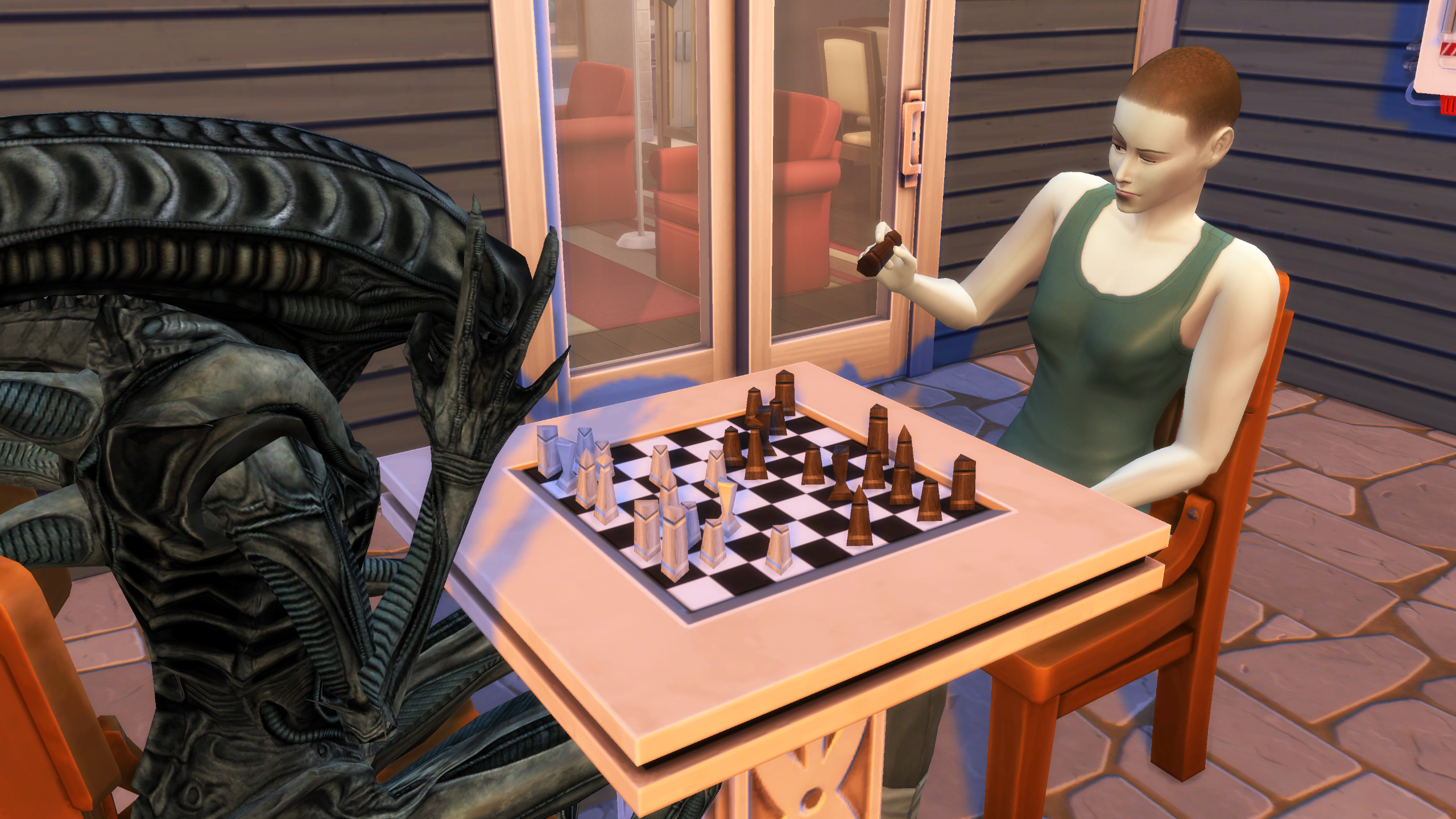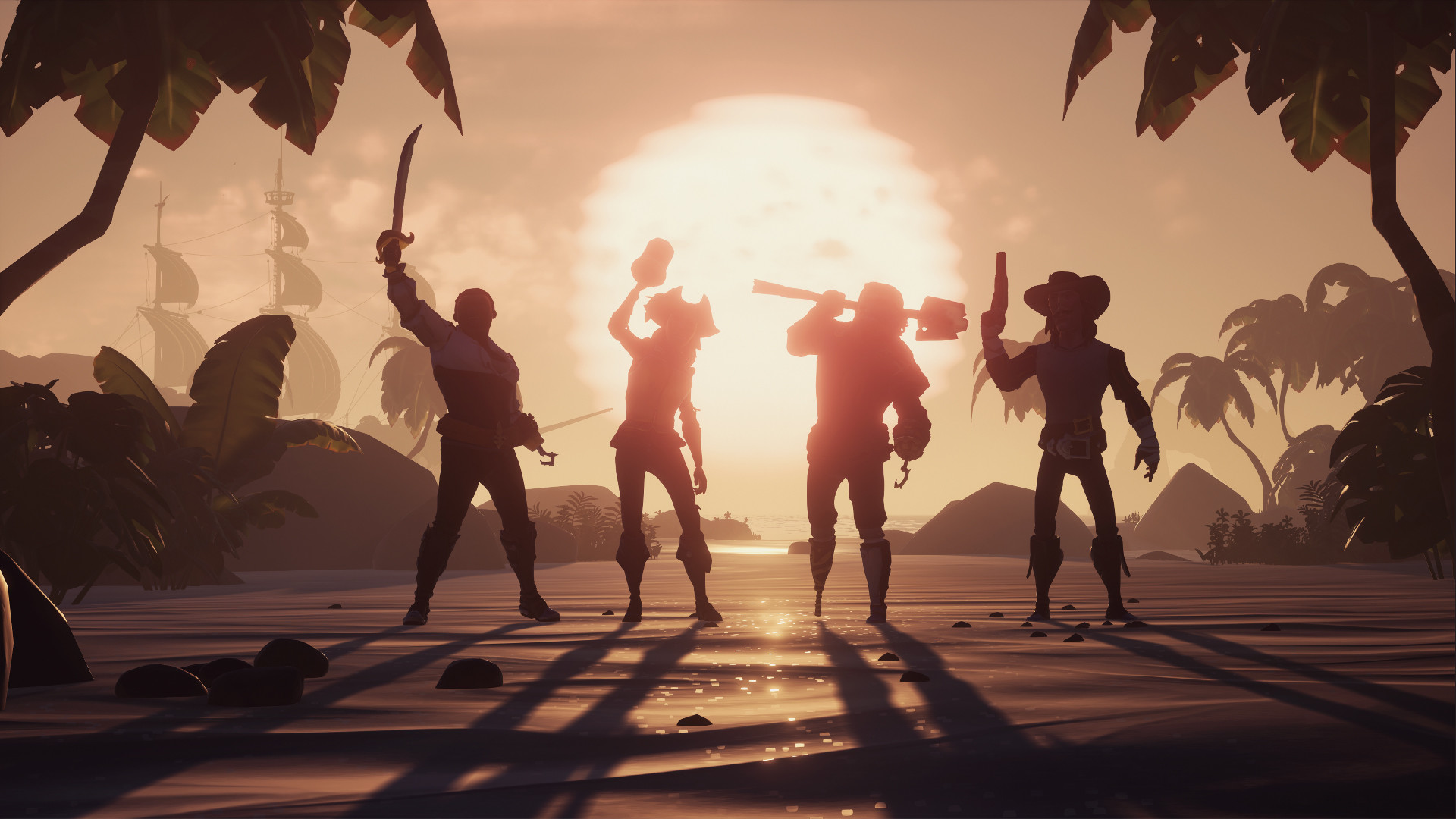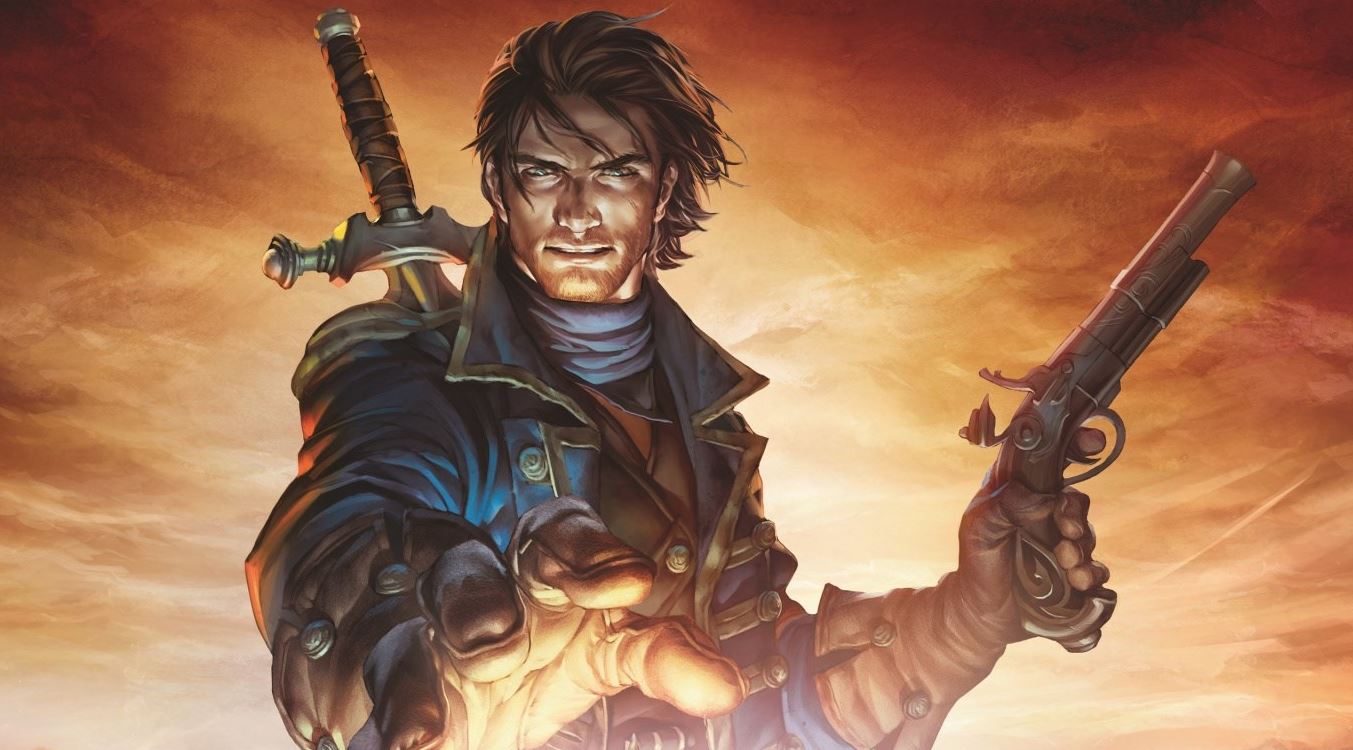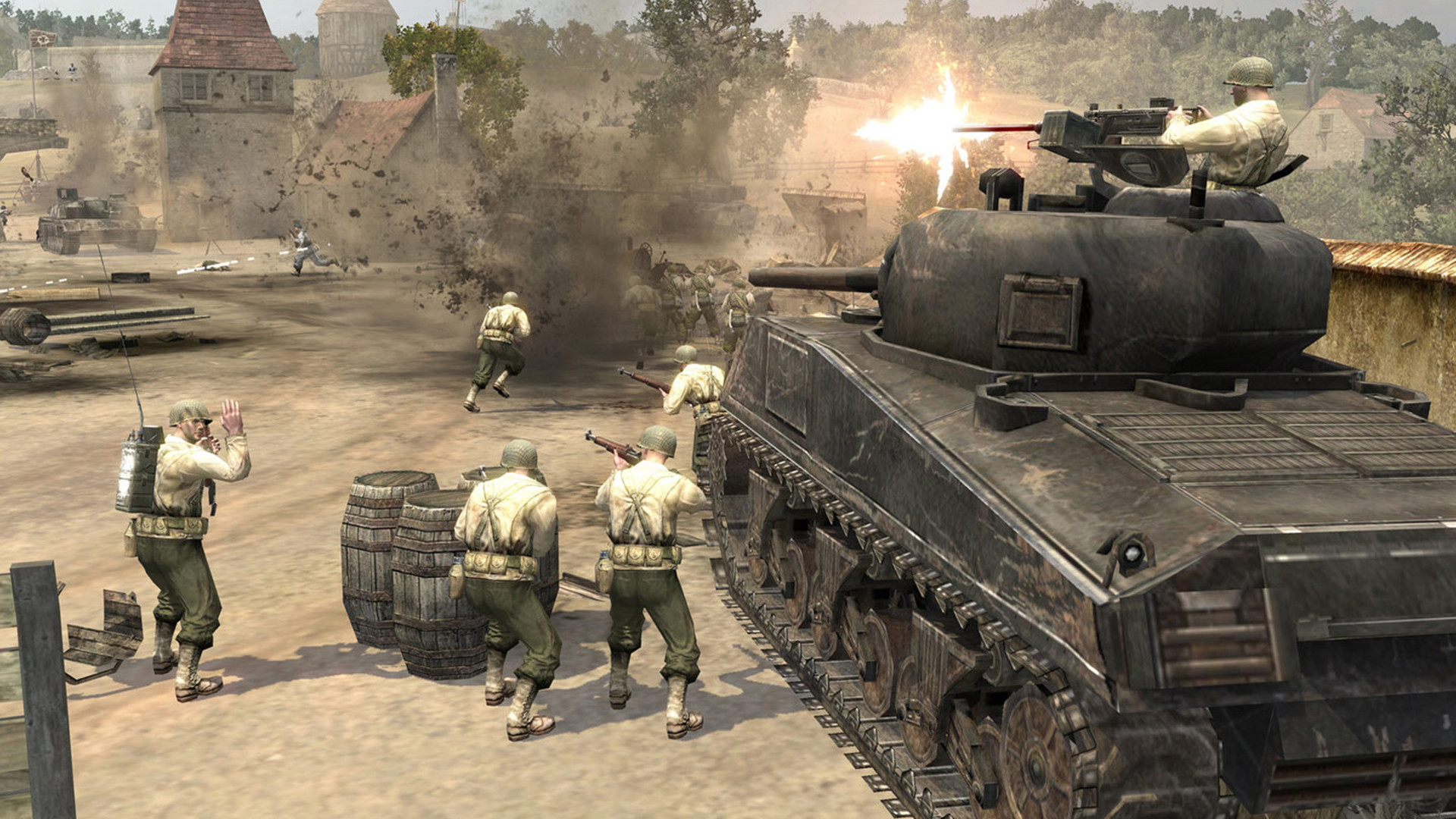What happened to 12 of gaming's biggest studios after they were sold
A look back at some of gaming's biggest studio sales.
VIDEO: What happened to 12 of gaming's biggest studios after they were sold, also available on YouTube.
Microsoft's purchase of ZeniMax Media for $7.5 billion was a major move that opened up exciting new possibilities for studios previously restrained by budgets and resources. But if we think about the history of capitalism for one second, the worry creeps in. Even though Master Chief and Doomguy can kiss now (it's canon), Microsoft's adoption—or absorption—of some of PC gaming's most beloved series and studios will likely result in major internal cultural shifts and studio closures over time. Change is a constant with big corporations like this, and if the bottom line isn't met, Microsoft will eventually move around some furniture in order to keep making money.
Let's orient ourselves and steady our minds by looking back at how some of the biggest studio acquisitions worked out. We're not trying to determine the root cause of what changed (or didn't) after each studio was bought out, unless it's been made explicit already.
We're just sifting through some broad history for context and refreshing our minds to properly process the fact that Microsoft owns Fallout, Wasteland, Halo, Doom, Psychonauts, The Elder Scrolls, Dishonored, Minecraft, Hellblade, Fable, Banjo-Kazooie, Gears of War, Forza, Age of Empires, and more—and that they can all kiss now.

EA buys Maxis (1997) | Price: $125 million
Before purchase: The SimCity series and its sequels are commercial and critical successes, but Maxis is unable to find another major hit. Heavy financial losses force Maxis to seek acquisition.
After purchase: The Sims is a massive success and Maxis continues work on expansions and sequels. Spore spends a long time in development, and players find it underwhelming when it finally releases. Will Wright leaves Maxis. Darkspore is released for some reason. Work, as ever, continues on The Sims. A new SimCity finally arrives, but is plagued with server issues at launch and sales are disappointing. As a result, EA closes the Maxis Emeryville studio and assigns the team to work alongside EA Mobile. Maxis continues work on The Sims 4 and its expansions today.
EA buys Westwood Studios (1998) | Price $123 million
Before purchase: Westwood releases some classic PC games like The Legend of Kyrandia and Dune 2, but really hit it big with the Command and Conquer series. Blade Runner becomes a cult classic. (Westwood also made that bonkers difficult Lion King game for the Genesis. Damn. The more you know.)
The biggest gaming news, reviews and hardware deals
Keep up to date with the most important stories and the best deals, as picked by the PC Gamer team.
After purchase: Westwood puts out some more beloved Command and Conquer games, but the sales teeter out with Renegade and failed MMO Earth and Beyond. EA dissolves Westwood Studios shortly after.
Microsoft buys Ensemble Studios (2001) | Price not disclosed
Before purchase: Ensemble picks up early momentum developing the highly successful Age of Empires RTS series. A sequel and expansions do well for the company, netting it a deal to create a Star Wars RTS in Star Wars: Galactic Battlegrounds, released the year of Ensemble's acquisition by Microsoft. It is not as widely loved as Age of Empires, but sells well.
After purchase: Age of Mythology releases, a critical and commercial hit, its expansion The Titans following suit. Age of Empires 3 another big RTS success. Two expansions follow in The WarChiefs and The Asian Dynasties. Ensemble is tasked with making an Xbox-exclusive RTS in the Halo universe. Microsoft announces Ensemble will close after the release of Halo Wars. Halo Wars releases to generally favorable reviews and sells well. Ensemble is permanently shuttered.
Activision buys Treyarch (2001) | $20 million
Before purchase: Treyarch develops a few hockey and baseball games published by EA. Treyarch also releases Die by the Sword, a well-received action game in which the player could independently control the character's sword arm using the mouse. It fails to find an audience.
After purchase: Activision assigns Treyarch to licensed games, including Spider-Man (based on the 2002 film), Minority Report: Everybody Runs, and Kelly Slater's Pro Surfer. (I wonder what that Kelly Slater name is worth today?) Eventually, Treyarch dips a toe into Call of Duty with the console-exclusives Big Red One and Call of Duty 3. A few more Spider-Man games and a 007: Quantum of Solace quickie stand between Treyarch and the rest of its Call of Duty-cuffed life. With Call of Duty: World at War, Treyarch truly begins plugging away at the series, and largely with great success. The secret Zombies mode from World at War becomes a series staple, and the Black Ops series soon earns as much recognition as Infinity Ward's Modern Warfare. Treyarch is riding out Call of Duty with Black Ops - Cold War en route next.

Microsoft buys Rare (2002) | $375 million
Before purchase: Rare finds early footing developing licensed games for the NES. In partnership with Nintendo, Rare releases Donkey Kong Country to great success. Rare makes multiple sequels and Gameboy spinoffs. The Nintendo love continues with the Killer Instinct series, Blast Corps, and classic Nintendo 64 shooter Goldeneye 007. Perfect Dark emerges from the development of another 007 game. Banjo-Kazooie is another winner, spawning an even more critically and commercially successful sequel. Despite Rare's consistent track record with the company and growing stable of recognizable mascots, Nintendo does not purchase the studio.
After purchase: Rare struggles to find the same success it did with Nintendo with Xbox, releasing handheld Banjo games and original 3D games for Xbox like Grabbed by the Ghoulies to little fanfare. Xbox 360 launch titles Perfect Dark: Zero and Kameo: Elements of Power perform well enough but don't kick off a new era of acclaim for Rare. Rare begins working on games and features tied closer to the Xbox platform, like Xbox Avatars, Project Spark and Kinect Sports. Sea of Thieves is Rare's first big original game in a while, and it eventually finds an audience on PC. Rare is updating still Sea of Thieves today while working on Everwild, a new action-adventure game.
Warner Bros. buys Monolith Productions (2004) | Price not disclosed
Before purchase: Monolith experiments with genre and style, but finds a winner with first-person shooter Blood. Multiple expansions and a sequel follow shortly, including Shogo: Mobile Armor Division, a mecha anime inspired FPS that looks like a retro demake of Titanfall. FPS games become Monolith's specialty, with The Operative: No One Lives Forever and Alien Versus Predator 2 releasing to critical acclaim. No One Lives Forever sells well enough to spawn a strong sequel with No One Lives Forever 2: A Spy in H.A.R.M.'s Way. Tron 2.0 continues the good FPS streak. Monolith begins development on The Matrix Online in collaboration with Warner Bros.
After purchase: The Matrix Online gets a mixed reception, Warner Bros. sells the rights to Sony Online Entertainment. F.E.A.R. is yet another highly successful FPS for Monolith, critics citing the stylish slow motion ability, impressive destruction, and clever enemy AI. Condemned and its sequel are generally well-regarded on Xbox, with the former receiving a poor PC port. Sales aren't astronomical and the series is left behind. F.E.A.R. 2 releases to middling reviews and big sales. Gotham City Imposters is released, a free-to-play competitive FPS in the Batman universe that fails to find an audience. Monolith follows up with the highly successful Middle-earth: Shadow of Mordor and its sequel, Shadow of War, shortly after.

Microsoft buys Lionhead Studios (2006) | Price not disclosed
Before: purchase: Black & White is Lionhead's first game, a critical and commercial success. Development begins on six projects, Fable chief among them. It becomes Lionhead's biggest hit yet. Black & White 2 and The Movies release in the following years, but do not sell well, putting strain on Lionhead's financial resources.
After purchase: Fable 2 is released, selling and reviewing well. Fable 3 is developed in 18 months, sales do not meet expectations, and critics find it lacking. Lionhead works on a few Kinect projects, including the cancelled Milo & Kate, the scraps of which become Fable: The Journey. Studio head Peter Molyneux and several veteran Lionhead staff resign on the same day. Development begins on Fable Legends, Lionhead's first attempt at a live game. The project is cancelled and Lionhead is permanently closed.
EA buys Bioware (2007) | $775 million
Before purchase: Bioware builds a rocksteady reputation as one of the best RPG developers in the world across a breadth of genres and design with games like Baldur's Gate and its sequel, Star Wars: Knights of the Old Republic, and the original Mass Effect.
After purchase: Bioware's founders depart. The Dragon Age series retains Bioware's well-written characters, but loses the depth and imagination of previous games. The Mass Effect trilogy wraps with a well-received middle chapter and a particularly controversial ending. Bioware buries some stories in the MMO Star Wars: The Old Republic. Mass Effect Andromeda is largely considered a regressive followup to the original trilogy, though it finds some ardent defenders. Anthem continues the trend; Bioware's first live game drops the usual RPG framework for mech action, but critics find the loot loop empty, the world and narrative even more so. Bioware confirms Dragon Age 4.
[By the way: Pandemic Studios was made part of the $775 million deal due to a contractual partnership with Bioware before the purchase. Pandemic, known for games like Destroy All Humans! And The Saboteur, was dissolved by EA in 2009, shortly after the acquisition.]
EA buys PopCap Games (2011) | $750 million
Before purchase: PopCap puts out some of the most elegant, simple, joyous casual games of all time for PC, consoles, and mobile platforms. Bejeweled, Peggle, Peggle Nights, and Plants vs. Zombies are standouts, released with no microstransactions or free-to-play schemes on PC.
After purchase: Plants vs. Zombies 2: It's About Time is restricted to mobile platforms, features oppressive free-to-play design. Peggle 2 does not release on PC. Mobile game Peggle Blast also introduces invasive microstransactions and like Plants vs. Zombies 2, the critical reception nosedives as a result. Plants vs. Zombies lives on as a cooperative and competitive third-person shooter in the Garden Warfare series on PC, a series generally well-regarded despite the major departure in design from the overriding simplicity of PopCap's early games.
Microsoft purchases Mojang | 2014 | $2.5 billion
Before purchase: Minecraft is already the biggest game in the world, though Mojang's smaller size makes keeping up with expansion to as many platforms as possible while continually updating the game a challenge. Even so, Minecraft stays a healthy leviathan.
After purchase: There's some early worry that Microsoft will eventually make Minecraft a PC and Xbox exclusive game, but Minecraft is still supported on mobiles devices, the PS4, and the Nintendo Switch. Even the original Java Edition is still supported, a win for modders. Microsoft pairs with internal studios with Mojang to develop spinoffs, like Minecraft Dungeons, the mobile Minecraft Earth, and an experimental Hololens version of Minecraft.

Sega buys Relic Entertainment (2013) | $23 million
Before purchase: Under early parent company THQ, Relic releases a near constant stream of some of the most well-regarded RTS games ever made, including the Homeworld series, Warhammer 40,000: Dawn of War and its expansions, Dawn of War 2, and Company of Heroes. THQ goes bankrupt and sells Relic to Sega. Homeworld is sold off in a separate auction to Gearbox.
After purchase: The streak is broken when Company of Heroes 2 releases to diminished acclaim, critics citing wonky AI and poorly paced campaign. Dawn of War 3 is a decent RTS with a forgettable story. Relic is now developing Age of Empires 4.
EA buys Respawn Entertainment (2017) | $315 million
Before purchase: Published by EA, both Titanfall games are critically acclaimed but struggle commercially.
After purchase: Built on the back of Titanfall's fiction and shooting design, Apex Legends finds a big audience, even at the height of the battle royale gold rush. Star Wars Jedi: Fallen Order is a commercial and critical success. A sequel is put in development almost immediately. New seasons hit Apex Legend every few months while it appears to retain a healthy playerbase. A new Vancouver-based studio is established for ongoing development and support for Apex Legends. Respawn continues work on Medal of Honor: Above and Beyond for Oculus and SteamVR.
James is stuck in an endless loop, playing the Dark Souls games on repeat until Elden Ring and Silksong set him free. He's a truffle pig for indie horror and weird FPS games too, seeking out games that actively hurt to play. Otherwise he's wandering Austin, identifying mushrooms and doodling grackles.
